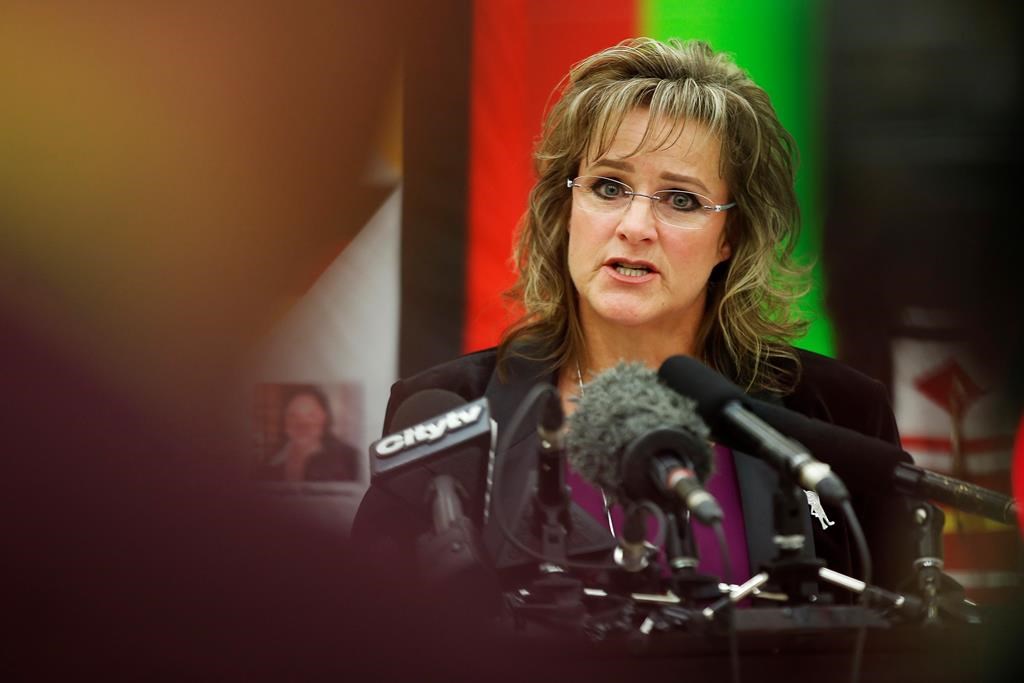A report by Manitoba’s children’s advocate looking into the suicides of 22 girls has found gaps and barriers to getting help in the days before their deaths.

Daphne Penrose says suicide is the leading manner of death for young people 10 to 17 years old in Manitoba.
In the last five years, 79 youth have killed themselves, an average of nearly 16 each year.
Penrose says the province’s mental-health programs are not child friendly, have long wait lists, and put the onus on children and their families to hold it together before getting help.
Penrose says it is clear “the adult system currently has the eye of the government” and funding for youth is being used elsewhere.

The report makes seven recommendations, including ensuring equitable access to services across the province and mandating early childhood trauma education for service providers.
“Children deserve better and the government must begin responding in meaningful ways that demonstrates its understanding of the short- and long-term costs of inaction,” Penrose writes in her report released Thursday.
The report looked at the risk factors of the 22 girls, most of whom were Indigenous and lived large portions of their lives in rural or isolated communities. Their real names were withheld for privacy reasons.
“The fact is that the quality and effectiveness of health services depends on where a child lives in Manitoba,” Penrose says.
Addictions, violence, bullying

Get weekly health news
More than 90 per cent of the girls had parents or caregivers who did drugs or drank, 86 per cent had a history of suicidal ideation, 82 per cent were in unstable housing and 77 per cent experienced violence at home. Sixty-eight per cent had also been bullied.
While most of the girls had long histories with child-welfare agencies, they received little substantive support or effective intervention, the report says.
It tells the story of Gabriella, who died at 17. Her life was spent in and out of child welfare as her parents struggled with addictions. There was also physical abuse in the home.
The report says she was a good student who enjoyed extracurricular activities.
Gabriella became a permanent ward at 13. That’s when she began to hurt herself and was referred to a therapist. Later, she would disclose she’d been sexually abused.

As time went on, Gabriella attempted suicide multiple times and had short stays in hospital. She was always discharged with a plan, but the responsibility to follow was on her. Her final discharge plan included a list of crisis numbers and instructions to reach out. Gabriella took her own life the next day.
Andrea died by suicide when she was just 11 and after she had finished Grade 6. The report says Andrea was exposed to a number of risk factors for suicide, but received no documented support despite evidence of mental-health challenges as early as age seven.
“With the government’s lack of action on early trauma, some children in our province continue to carry immense pain from one day to their next with little or no support, intervention, engagement, or healing,” Penrose writes.
The advocate says changes must be made and the health of children in the province depends on all Manitobans.
“In the end, the health and wellness of children and youth in Manitoba will continue to depend on all Manitobans to pull together to ensure young people have the services and supports that they need throughout each stage of their lives.”
The report has seven recommendations, including ensuring equitable access to services and mandating early childhood trauma education for service providers.
Health Minister Cameron Friesen said in a statement that the province will consider the recommendations. He pointed to government funding for mental-health services for youth and children.

“We are committed to working together with organizations, communities and families to help improve the lives of our children and youths,” Friesen said.
Berndette Smith, the NDP Opposition’s mental-health critic, said in a statement that it’s “no surprise that the most vulnerable and disadvantaged kids — young people in the North — are unable to access much-needed supports and services.
“The government’s patchwork approach to programs and one-time funding model doesn’t benefit kids, youth,and families in the long term.”
The Liberals said it’s been clear for a long time that Manitoba has a weak mental-health system and more needs to be done.




Comments